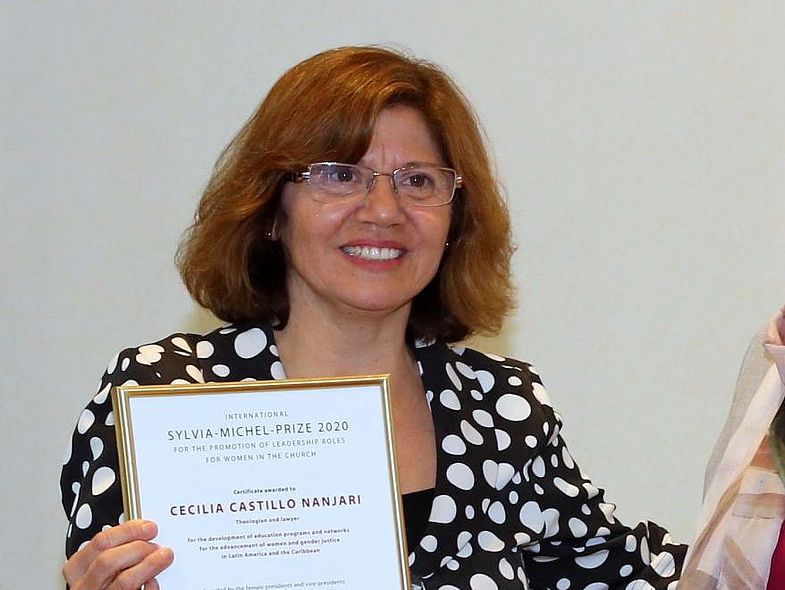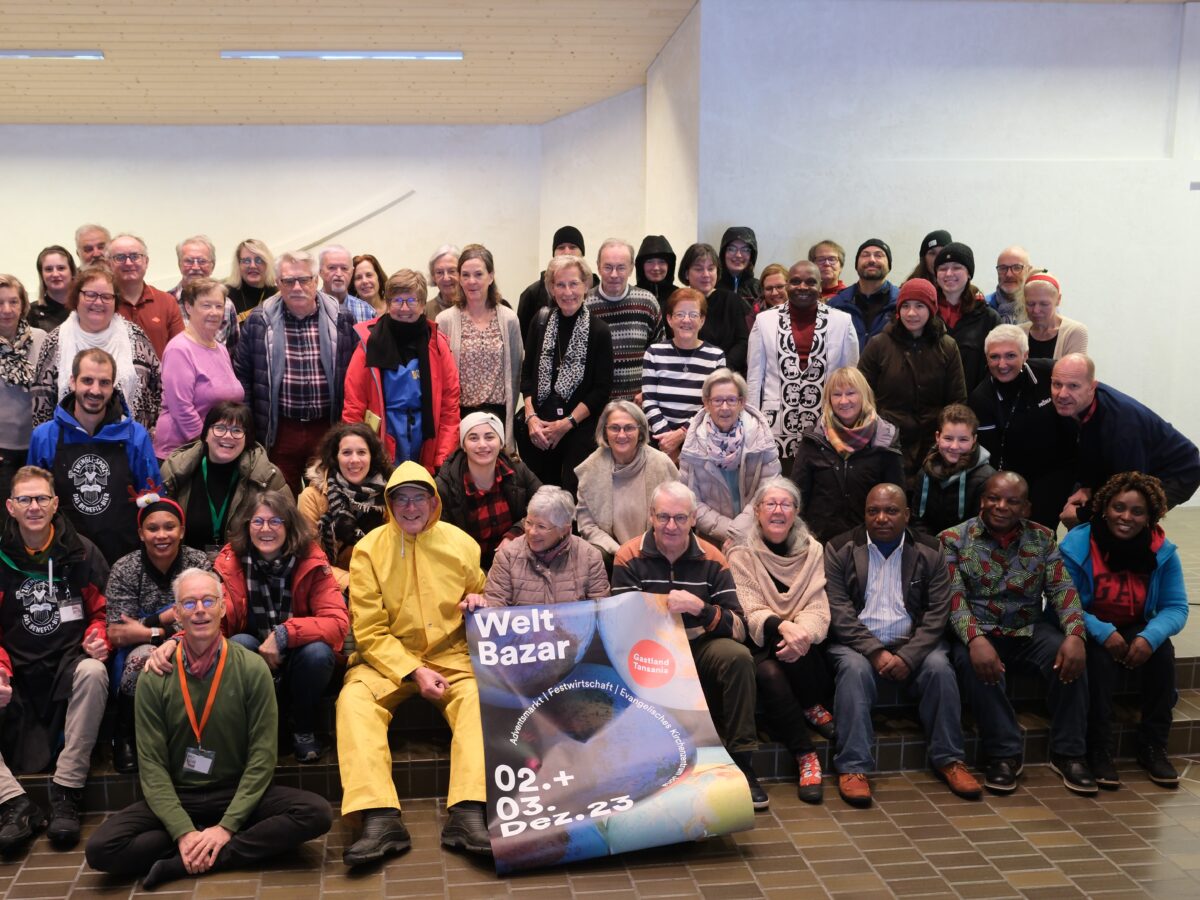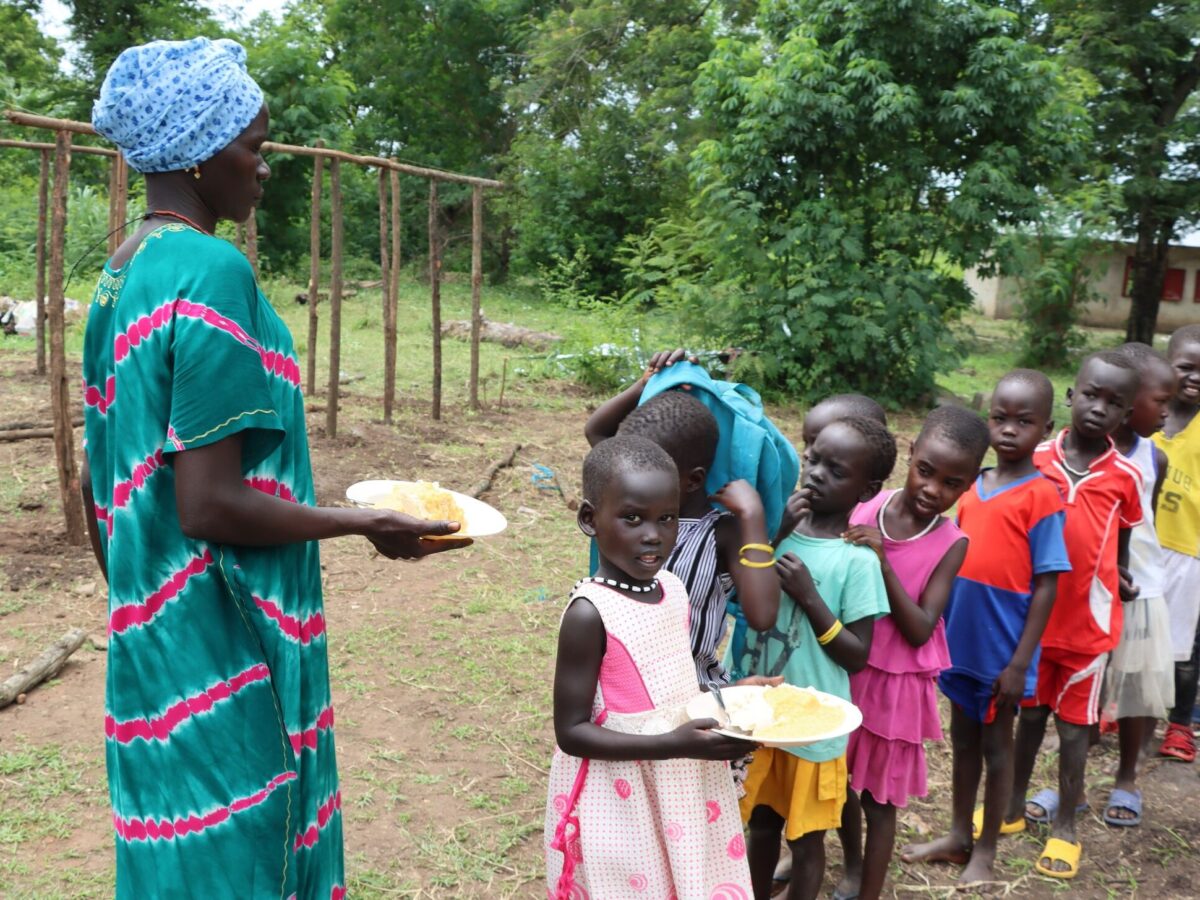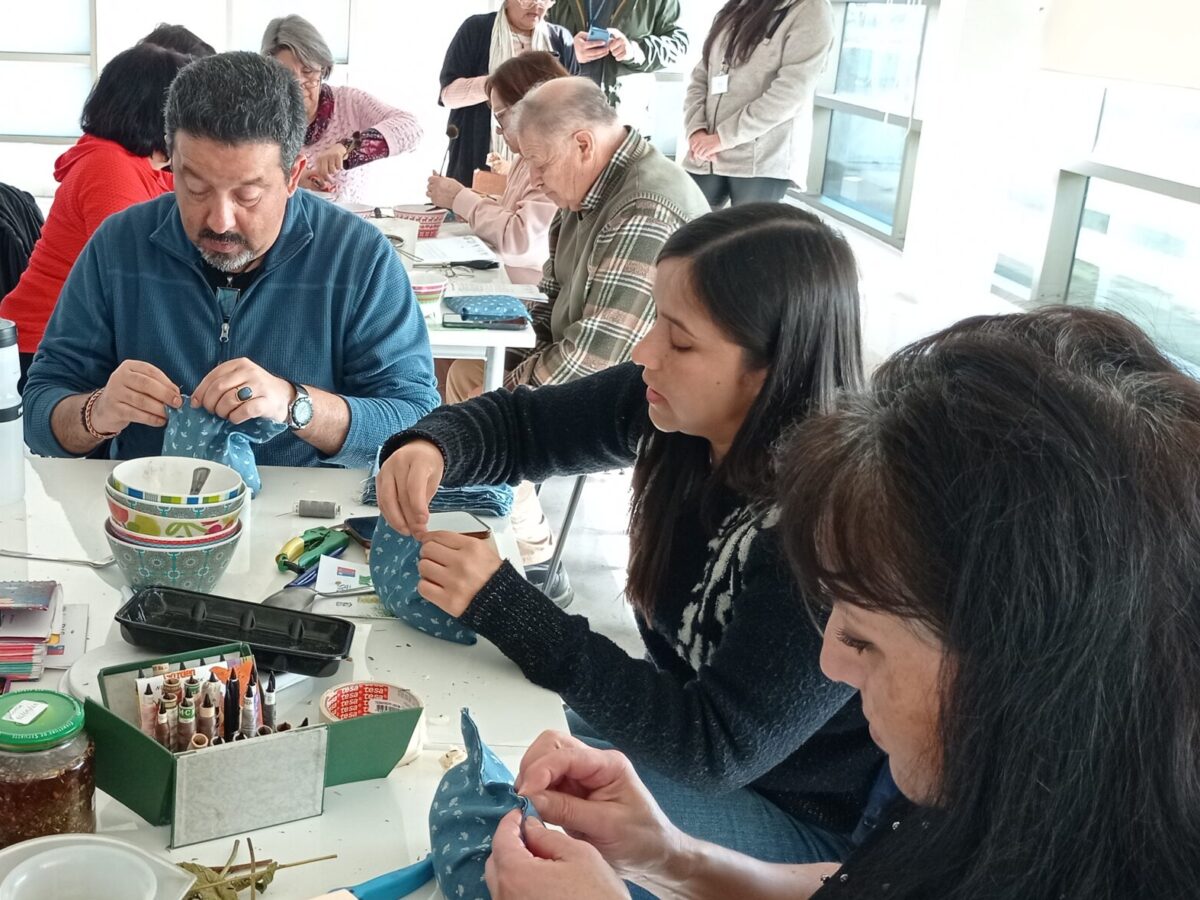March 8 was International Women's Day. On this occasion, we at Mission 21 want to celebrate the successes of women - here in Switzerland and around the world. For example, of Cecilia Castillo Nanjari: The Chilean theologian is part of the international network of Mission 21 and was awarded the Sylvia Michel Prize this year. The $5,000 prize is awarded every two years by the current presidents of Swiss Reformed churches together with the World Alliance of Reformed Churches' Office for Church Renewal, Justice and Partnership. We met Cecilia Castillo Nanjari at the Mission House for an interview.
Mission 21: What does this Sylvia Michel Award mean to you?
Cecilia Castillo-Nanjari: I feel honored and grateful. On the one hand, because I was chosen for this award. But also because the women of the various churches in Switzerland really took extremely kind care of me during my time here, it was just great. But the prize also means a great responsibility for me. I know many fascinating women theologians who would have deserved this prize at least as much as I do. I would now like to work with them in an even more committed way to promote women.
What is your specific activity?
On the one hand, I work as a lecturer at the Evangelical Bible Fellowship (CTE), where I always incorporate current social issues into the lessons. At the same time, I am involved with the Latin American Church Federation (CLAI) and do a lot of international networking there. Because in this way we strengthen our sisterhood and the feeling of not being alone. The concept of sisterhood according to the Mexican anthropologist Marcela Lagarde means more than simply mutual support and solidarity among women: Through sisterly behavior, we transform society in a very concrete way by modeling the possibility of a dignified life for women in abundance.
Why is it important to promote women's rights in Chile?
Women are strongly disadvantaged politically and economically. This is evident in the current protest movement in Chile. Women are also often doubly affected by the injustices that are being denounced.
Tell me about the political and social situation in Chile.
On October 18, 2019, students in the capital Santiago protested against the Metro fare increase by riding black en masse. Since then, a social uprising has flared up that has not abated in strength. From the beginning, it was about much more than this fare increase - it was merely the trigger. The neoliberal system in Chile exploits the people and serves the economic-political elites. Everything is privatized, even health and education. Many people are in debt, and the middle class spends absurdly high portions of its income on essential goods by international standards. People have had enough. This movement also connects with other movements - such as the student movement of 2010 or the indigenous Mapuche, who have been disadvantaged by all Chilean governments so far, even under the more progressive Michelle Bachelet. All of these movements gained strength under the current circumstances. In the past, for example, the Mapuche fought alone, but now we are all fighting together.
So you support the protests?
Sure! Already three days after the beginning of the uprisings, we wrote two letters to the president, one with the Ecumenical Churches of Chile, one with the Latin American Federation of Churches. Because we were worried about the extent of the repression shortly after the protests began. Fortunately, thanks to the new digital possibilities, it is possible to exchange information and network quickly in such a crisis.
Where do we go from here?
Social injustice in Chile is also rooted in the outdated constitution, which dates back to Pinochet's military dictatorship. On April 26, Chile will now vote on whether we want a new constitution, as well as how it should come about.
Have the protests lost steam since this concession?
No, because many think it goes far too little: The government is still to determine at least 80 percent of the content of a possible new constitution. But at least it's a start. The government is trying everything to contain the protests - now it is even scaring the demonstrators with the corona virus. But I don't think this movement will stop until something really changes. For many, it has reached a point where they have nothing left to lose. While some wish we would finally get back to normal, I disagree. What's the point of all the fighting, all the lost eyesif we give up now?
What role do women have in the current protest movement?
A very important one. The movement is mainly carried by young, self-confident people, and feminists are a driving force. In general, women are often the driving force behind political and social movements - we saw this in Chile during the military dictatorship, for example in the "no mas hambre" movement.
And what is the political and social role of the church - currently in Chile and in general?
With a progressive ecumenical group, we are very active in the current movement; for example, we are spreading info videos about the new constitution on social media in order to take away people's fear of change. If we refer to the essence of the Bible and Jesus' words, we as Christians actually have an enormous political responsibility: basically, Christianity is about a good life for all people, which is actually a very political demand. But of course there is always everything: The official Catholic Church in Chile is cautiously holding back on government criticism, while many grassroots Catholic groups are engaging with us. Some evangelical groups are closely aligned with the right-wing business elite and speak out against the protests. Unfortunately, these conservative groups often have more financial resources and can thus make their voices heard - and thus also shape the church's public image.
What is the motivation for your work and your commitment?
I was strongly influenced by my grandparents, who were also pastors, and by my parents - all very social personalities who were rooted in their faith. Even during my theology studies, I did volunteer work for socially disadvantaged girls in Chile. I think it is important not only to work in a specific environment, but to work with different social actors - be it in favelas in Brazil or in Chile, with church groups, but also with social and political actors and UN instruments. I deeply believe in interpersonal encounters and that we enrich each other - and that this is how transformation becomes possible.
Interview: Mara Wirthlin






